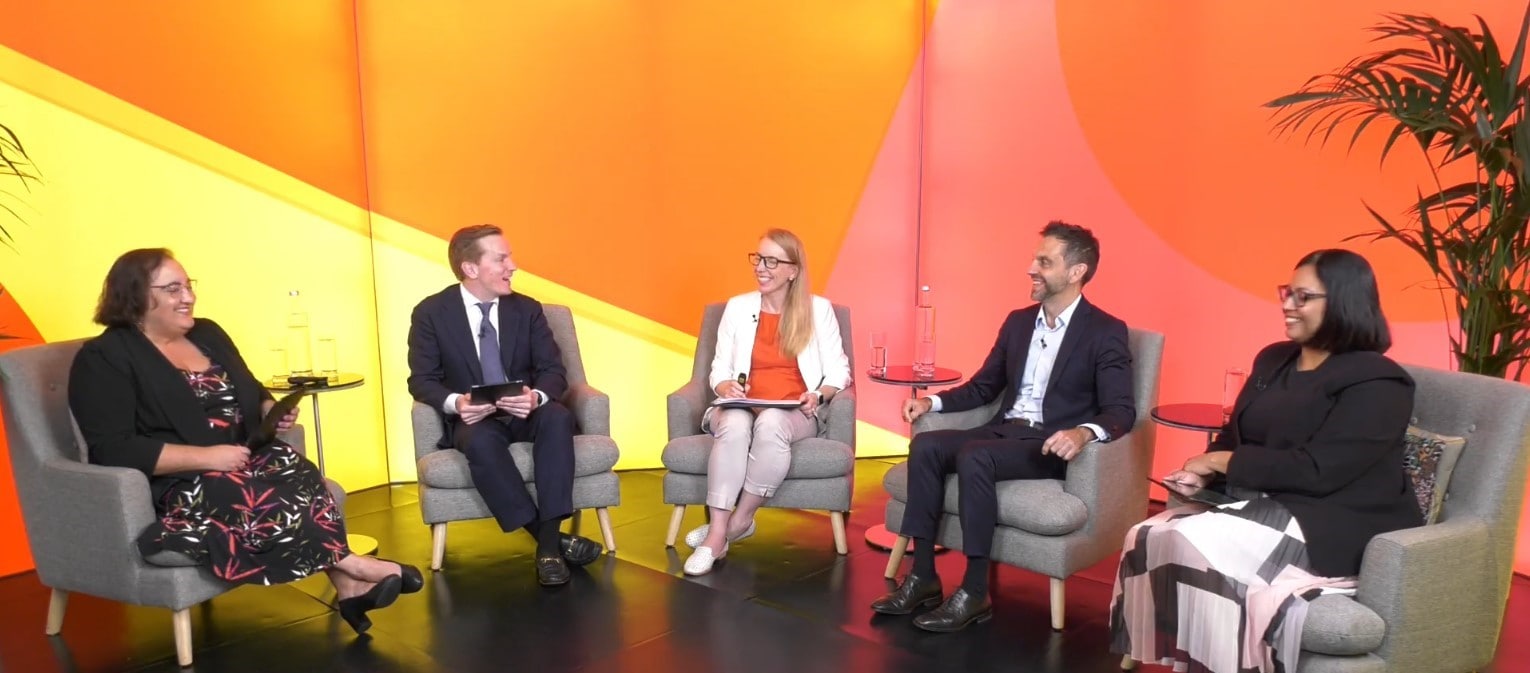Navigating the Future: Insights from PwC’s 2025-26 Federal Budget Tax Briefing
In an engaging and thought-provoking session on the 2025-26 Federal Budget, PwC’s Tax Briefing explored critical insights into Australia’s current economic landscape, tax framework, and foreign investment competitiveness. Hosted by Patricia Muscat and Stuart Landsberg and joined by Chief Economist Amy Lomas, Chris Morris and Kaajri Vaughan the briefing dissected the issues faced by businesses and taxpayers in the lead up to the federal election, which has now been called for 3 May 2025.
Chief Economist Amy Lomas provided a comprehensive overview of the economic elements of the Budget, including the domestic growth and fiscal outlook. She highlighted the shift in risk from inflation to global trade tensions, noting Treasury’s assessment that the direct economic impact on Australia of global trade tensions is likely to be moderate (with any more significant impacts being due to the indirect impact on our trading partners). She also noted the key spending initiatives in the 2025-26 Federal Budget across health, housing, cost-of-living and education, and major investments in infrastructure and financial assets.
In what was a tax-light budget, the panel briefly discussed the new tax measures announced, including personal income tax cuts and deferred start dates for some previously announced measures. An additional almost $1bn in funding to the ATO – to expand and extend various existing compliance programs – is estimated to collect an additional $3.2bn in tax receipts over the forward estimates.
A key takeaway from the event was the growing importance of tax certainty in decision-making both for Australian businesses and foreign investors. As one speaker aptly noted, 'What we are trying to build is ‘the’ next Australia' underscoring the pressing need for an environment that fosters stability and clarity, with a specific example being the proposed capital gains tax changes for foreign investors. Uncertainty in transitional settings could deter potential investment, and foreign direct investment is critical for driving economic growth and innovation.
Panellists compared Australia’s offerings with more attractive environments like Singapore, which has recently introduced tax incentives for family offices. Here, an opportunity emerges for Australia to rethink its tax settings to better compete on an international scale. It is vital that we put our best foot forward and ensure that tax settings are consistent with what otherwise sets Australia apart as a destination for foreign capital.
The theme of ‘uncertainty’ continued with a discussion of announced but unenacted tax measures, and a wish list of potential areas for tax reform that have not been addressed by the current Government, including practical tips for navigating this uncertainty.
In conclusion, the 2025-26 Federal Budget Tax Briefing sparked essential discussions surrounding the evolving economic and tax policy landscape in Australia. Australia stands at a crossroads; successful navigation of the future hinges on a collaborative effort between businesses, policymakers, and tax authorities to establish better clarity in tax regulation to create efficiencies, drive productivity and attract valuable investments. As Australia forges ahead, embracing innovation and strategic improvements in its tax framework will be crucial to maintaining our competitive edge on the global stage.
Stay tuned as PwC continues to shed light on the implications of these changes and drive meaningful conversations that shape the future of business in Australia. Watch the on demand here, or read our comprehensive tax analysis on PwC’s dedicated Federal Budget website.
© 2017 - 2025 PwC. All rights reserved. PwC refers to the PwC network and/or one or more of its member firms, each of which is a separate legal entity. Please see www.pwc.com/structure for further details. Liability limited by a scheme approved under Professional Standards Legislation.










